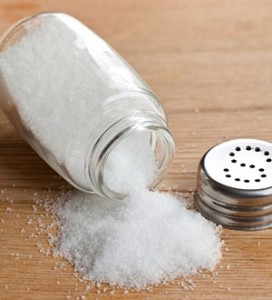Salt is good for the body but only when taken in the right amount. Too much of it is harmful to human health and can lead to cardiovascular disease.

Today’s health conscious people make it a point to have a low-salt diet. But other than your diet, medical and nutrition experts also strongly recommend avoiding stress in your daily life.
A new study has found that stress can cause sodium retention in one’s body. Head author, Dr. Gregory Harshfield of the Georgia Health Sciences University, revealed that among the African Americans covered in their research, 30 percent retained a great amount of sodium in their body. And what’s worth noting is that this amount of salt is already equivalent the sodium you get from eating a small order of french fries?
The researchers found that when the subjects experienced stress, they keep a higher amount of salt in their bodies. Stress increases their risk of retaining 160 milligrams of sodium and increasing their top blood pressure number by seven points.
High salt intake is often associated with high blood pressure particularly when a person is sleeping. But according to Harshfield, increasing blood vessel constriction is the body’s natural reaction to stress which is beneficial as it helps in eliminating salt.
For every individual, the recommended daily sodium intake should only by 1,500 milligrams per day. In reality, however, people normally consume an estimated 3,700 milligrams of salt each day.
A similar study done by Dr. Harshfield in the past also showed that 30 percent of African Americans and 10 percent of Caucasians had a tendency of retaining salt for a longer period of time when stressed. This condition resulted in high blood pressure.
Photo via healthyliving.msn.com
Originally posted on September 10, 2012 @ 10:00 am